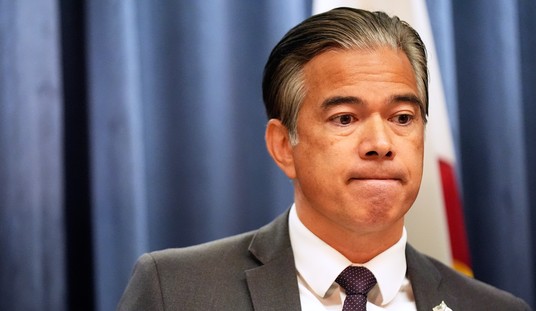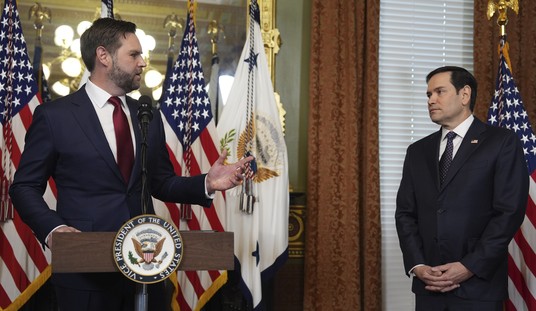Talk about stepping on the White House message! Earlier on Tuesday, the White House announced executive actions from Barack Obama to curtail tax inversions, where an American company buys or merges with a foreign firm in order to repatriate outside the US and pay lower taxes on foreign income. The “regulatory tweaks,” as the Christian Science Monitor calls them, attempts to punish these firms and make the move less attractive, although the impact will be limited without statutory changes from Congress:
What the Obama administration announced, to reduce the appeal of tax inversions, are several regulatory tweaks:
- Making it harder to invert in the first place, by strengthening a requirement that owners of a US entity must own less than 80 percent of the new combined entity.
- Cracking down on “hopscotch loans,” by which a company combines the inversion strategy with inside-the-company loans to give the US firm lower-tax access to earnings from abroad.
- Preventing another stratagem used to gain tax-free access a foreign subsidiary’s earnings, known as “de-controlling” because it involves having a new foreign parent company become majority owner of a foreign subsidiary. Similarly, a cash-transfer strategy between a subsidiary and a new foreign parent will now be barred.
The moves won’t be retroactively applied to corporations that already have completed inversions, but they will apply to firms that have made announcements but have not yet completed the transactions.
The White House has spent weeks prepping the rollout of these executive actions. They have relentlessly demagogued on the topic, accusing the companies of failing at “economic patriotism,” and ginning up righteous populist rage directed at firms like Medtronics and Burger King. That’s the entire point of their campaign — not to actually fix the problem, but to stoke anger as a midterm exercise in base turnout, in multiple senses of the word base. It’s also an opportunity to poke at Republicans in Congress, who are asking why we should penalize companies who play by the rules the US set up rather than make those rules a lot more rational and attractive to US businesses in the first place.
Having spent weeks working towards this exercise in demagoguery, the Obama administration then watched Bill Clinton demolish it before the day was out. Speaking to CNBC from his Clinton Global Initiative in New York, Clinton took the blame for the high corporate tax rate and said that the solution is … exactly what the Republicans say it is:
When asked whether inversions — the practice of American companies acquiring a small overseas rival and reincorporating abroad to lower their tax bills — are unpatriotic, as many critics say, Mr. Clinton said that publicly traded companies, in particular, “feel duty bound to pay the lowest taxes they can pay.”
“I should make full disclosure here,” Mr. Clinton told CNBC’s Becky Quick. “I signed and supported the bill that raised the corporate taxes in America to the level they are now.”
But, he said it was a different environment when he was in office. “We were deciding we had to reduce the deficit to get interest rates down and spark an investment boom in America, and it worked,” Mr. Clinton said.
The former president added that it’s Treasury Secretary Jacob L. Lew’s job to get as much revenue as possible from corporations, but that the tax rate should not be higher than the average rate of countries in the the Organization for Economic Cooperation and Development, or O.E.C.D.
“We have the highest overall corporate tax rates in the world, and we are now the only O.E.C.D. country that also taxes overseas earnings,” Mr. Clinton said. “A lot of these executives, even if they wanted to bring the money home, they think this is crazy.”
A recent analysis by the Tax Foundation of OECD tax environments put the US ahead of France and Portugal, and behind all of the other 31 OECD nations. In fact, we are in a class by ourselves in just the manner Clinton describes, and not just within the OECD:
With the developed world’s highest corporate tax rate at over 39% including state levies, plus a rare demand that money earned overseas should be taxed as if it were earned domestically, the U.S. is almost in a class by itself. It ranks just behind Spain and Italy, of all economic humiliations. America did beat Portugal and France, which is currently run by an avowed socialist.
The Tax Foundation benchmark compares developed economies with large and expensive governments, but the U.S. would do even worse if it were measured against the world’s roughly 190 countries. The accounting firm KPMG maintains a corporate tax table that includes more than 130 countries and only one has a higher overall corporate tax rate than the U.S. The United Arab Emirates’ 55% rate is an exception, however, because it usually applies only to foreign oil companies.
Clinton’s correct on this, of course, but one has to wonder how long he’ll make this point. His wife wants to run for President in 2016, and she will need to stoke the same demagogic fires as Obama in order to woo a very skeptical progressive wing to keep from having to deal with a serious challenge from her left. Doses of common sense are Kryptonite to this kind of politicking, but the Clintons’ deep ties to Wall Street might make it difficult for them to do more than dip their toes into the paranoia pool. This also serves as a reminder that Bill likes to speak his mind, and might be a loose cannon for Democrats in 2016 and perhaps even in the waning weeks of the midterms.
Just ask the White House, which must be hoping that this cogent analysis from Bill Clinton flies under everyone’s radar. Otherwise, they might actually have to start fixing the problem rather than demonizing those who are doing their best to protect their interests while it remains.
Update: Jennifer Rubin says, “Conservatives however should thank him for making their argument so adeptly.” Indeed — and they should take care to bookmark those comments for the weeks to come between now and the midterm elections.







Join the conversation as a VIP Member